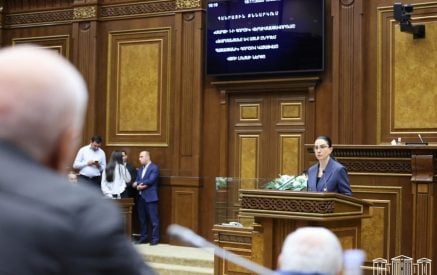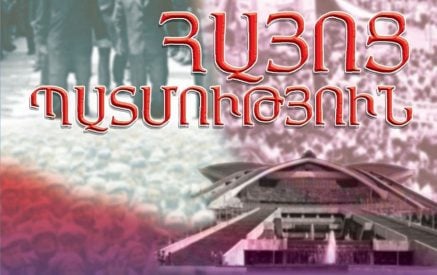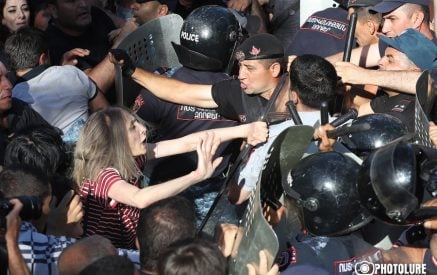The textbook of the Armenian history for universities expresses the current government’s position presenting the events of March 1, 2008, and in that sense, naturally, it cannot aspire
after laurels for accuracy. I wouldn’t even call it the official position, because there are ridiculous, I would even say, irresponsible claims in the textbook that cannot be found in any official document, in the criminal case in particular. For example, “Firearms were used by both sides during the clashes, as a result of which 10 people died.” One should probably have some substantial evidence that the opposition or the protesters used firearms to record it as a historical fact, but there is no such evidence. The whole text of the book about the events of March 1 testifies to the fact that both Edik Minasyan and all “contributors” were not conscientious and paid tribute to the Soviet conformism.
However, I am more interested in another issue – is there such a thing as “historical truth.” And even if there is, can it exist, when the event took place only 4 years and 6 months ago, and all the interested parties are still engaged in politics, and as we all know, that creates very unstable situations. If this book had been written by the Armenian National Congress (ANC) member, he would have written, for example, that Levon Ter-Petrossian’s supporters claimed that the bodyguards of famous oligarchs, including those of Gagik Tsarukyan, participated in the slaughter of March 1. Or would he have erased that sentence “urged” by the ANC politburo today? And tomorrow, after a “change of situation,” the same lines would have most probably been written again. If the historian should be guided by an order of some “politburo,” can he hand over accurate information to the generations to come?
However, let me try to complicate the issue further and honestly answer the following question – and if I had been instructed to write that part of the history book, would I have been able to disregard my own emotions? For example, the fact that Robert Kocharyan closed A1+, or that from March 1 to 20 of the same year, he banned the work of all normal news agencies. The one who writes history is a human being, and if he went through that period of time he writes about one way or the other, he by no means can avoid putting his emotions into the writing.
I think the important thing is that everyone talks on his behalf and not on behalf of his “politburo” or political team. Otherwise, we will have what we have in the notorious textbook of the Armenian history.
ARAM ABRAHAMYAN























































